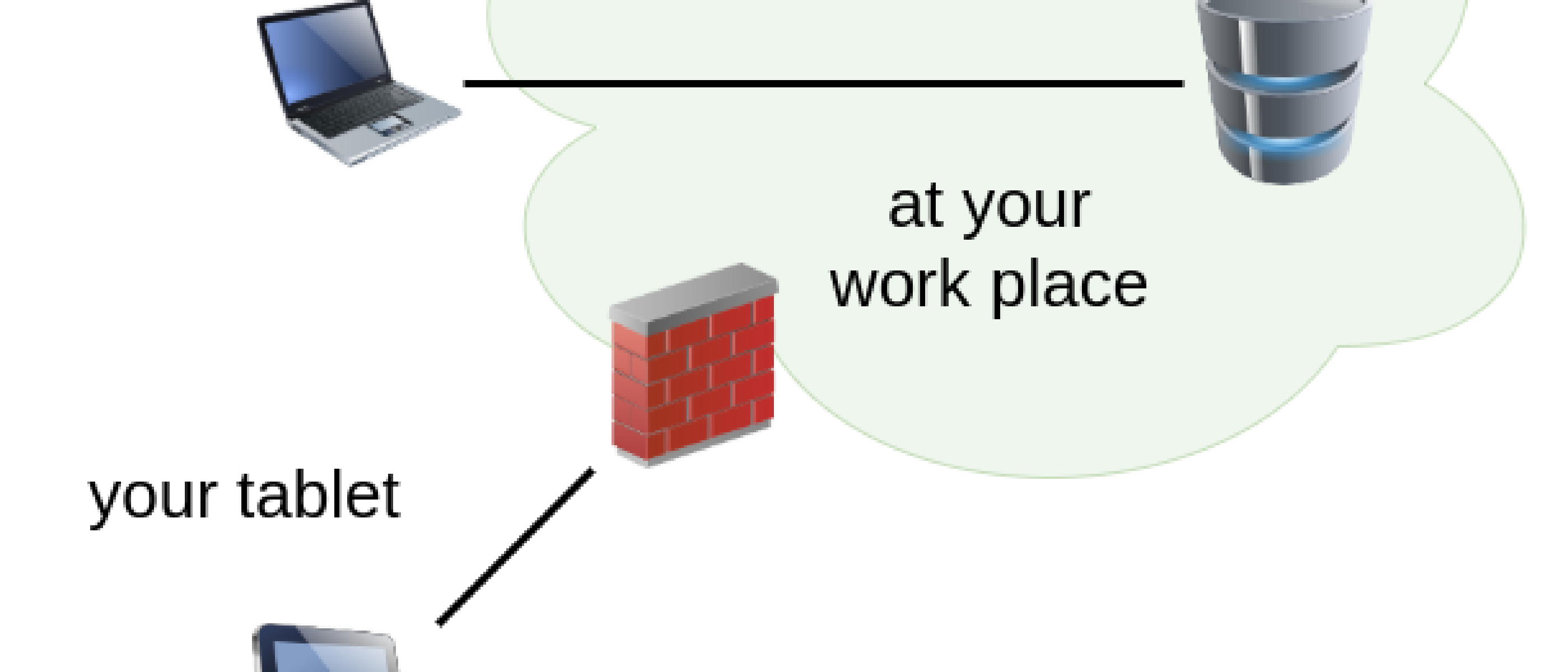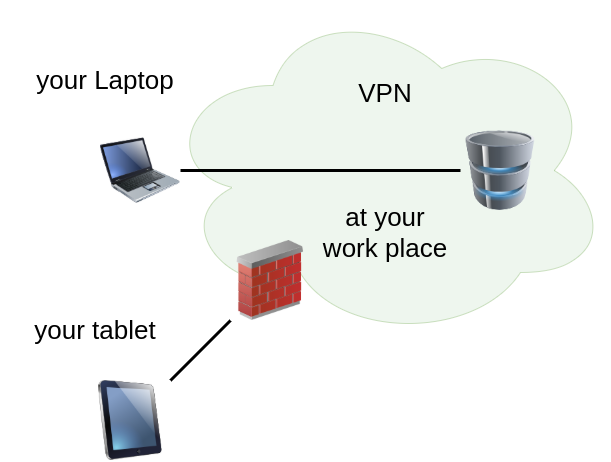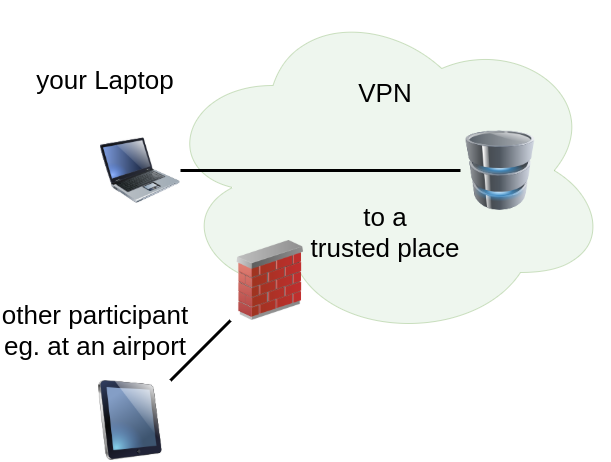VPNs: When to use a Virtual Private Network
Posted on February 5, 2021 • 3 min read • 589 words
A Virtual Private Network (VPN) secures your own device from other devices on the same local network. This is done by encrypting all traffic which leaves your machine. After that, only a chosen trusted third party machine can decrypt the traffic again. This machine will usually be hosted by either a service provider or eg. the IT department of your company. In this post, I give you some thoughts about when to use a virtual private network and when you are probably better of not using one.
At work

The IT department of your employer might ask you to always use their own VPN solution when connecting with your work devices. They do so to ensure that devices in your own home network do not affect the company — eg. when you are working from home or are on travel.
At home

You might wonder if encrypted network traffic is something you need also for your private life.
If you are at home, I would advise to not use a VPN solution. Probably, this will only bring you disadvantages. For example, VPNs usually have a slower Internet connection, lower bandwidth, or even not functioning things like video streaming. Additionally, there is not much benefit for you. I assume here that you actually can and do trust your own local network at home. If that is not the case — for example your house is full of gadgets from shady market places — then, indeed, a VPN is a good thing to use. However, you should not use these gadgets in the first place.
The situation is different if you are on the go. In public places like train stations, airports, or your favorite coffee shop, you are essentially connecting to a local network which you do not have much control on. Be aware that almost anyone could connect to these networks — their physical presence presumed. Thus, they might be able to tamper with your network traffic, read it, modify it, or reroute it. In these cases, a VPN might save you a lot of worrying as it makes it impossible for locally connected people to harm you. They will only see encrypted bytes on the wire (or in the wifi) which is completely useless to them.
The recommendations differ based on who is setting which kind of trust in your local network. With the company VPN, it is your employer who is not trusting your local network at home. You on the go, instead, should not trust random networks you connect to. But at your own home, you are most likely better of not using a VPN.
Other reasons
Finally, there are further reasons which might require you getting a VPN. For example, it is a solution to circumvent geoblocking on video streaming sites when you are abroad. Maybe you have encountered this already: You are on vacation somewhere in the world and want to enjoy the next episode of your favorite season. However, your streaming service tells you it is only available in your home country. Here, a VPN may virtually transfer yourself back home — or even wherever you could want to be on the world — enabling you to enjoy the next episode.
If you are interested in getting your very own private VPN solution, contact us and we will be happy to help you out.